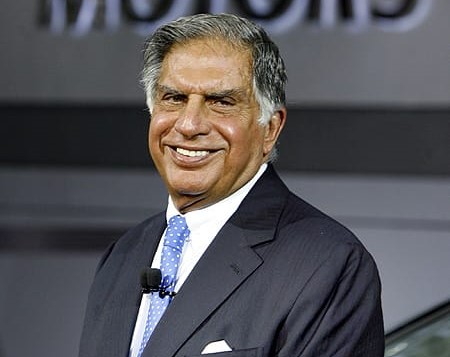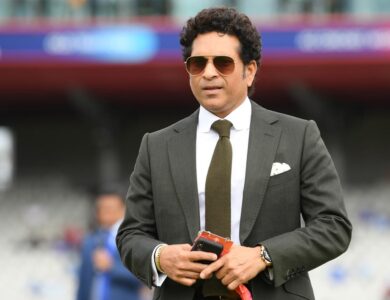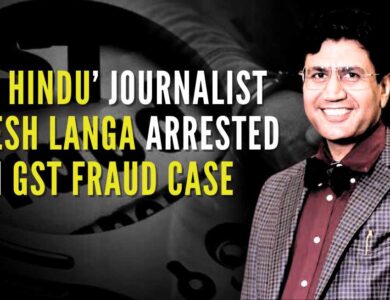
Ratan Tata
Ratan Tata is the name synonymous with integrity, business acumen, and philanthropy. Among the Indian industrialists, one name that inspires a great sense of respect for the most responsible industrialist is Ratan Tata. On December 28, 1937, in Mumbai, India, Ratan Tata came into this world as the great grandson of Jamsetji Tata, who founded Tata Group. He not only remained part of the legacy but went on to create a new standard at unprecedented heights all over the world. The Ratan Tata story is an epitome of visionary leadership, innovation, and social responsibility through impact cutting across from business into the social-economic fabric of India.
Early Life and Education
A scion of a powerful and a rich family, life was never smooth and on the green cushion for most of his early years for Ratan Tata. When he was just 10 years of age, his parents separated him from his siblings and brought him up by his grandmother, Lady Navajbai Tata. Although the emotional turmoil that characterized his childhood played its roles, Ratan had a fantastic academic career and carried on with his education in Campion School and Cathedral and John Connon School in Mumbai.
In 1955, he moved to the United States for higher studies to Cornell University, from where he passed out in 1962 with Bachelors in Architecture and Structural Engineering. Apart from this, he also did an Advanced Management Programme at Harvard Business School in 1975. His western education opened up his horizons as well as gave him a global outlook, which reflected in his business strategies later.
Entry into Tata Group
Ratan Tata entered the Tata Group in 1961, working on the shop floor of Tata Steel in Jamshedpur. The first work could hardly be glamorous as it was an ordinary blue-collar job in the scorching heat and dust of a steel plant. But these earlier years, at any rate, gave him an intimate acquaintance with the business from top to bottom, and they also showed his capacity for self-proving through rugged toil and consistent effort.
However, over the next two decades, Ratan Tata had experience in many Tata companies, but it was only in 1991, when his uncle, J. R. D. Tata, retired that he became Chairman of Tata Sons, the holding company of Tata Group. Under this bigness, Ratan had to modernize an industrial giant that all considered old-fashioned and slow-moving.
Transformation at Tata Group
He totally transformed Tata Group. He wanted to make the group look agile as well as more competitive in the global front. His objective was to make Tata a global brand. And for it, he implemented a number of key strategies.
Diversification and Internationalization
One of the significant characteristic emphases of Ratan Tata was diversification. He took the group into new sectors besides strengthening its conventional sectors like steel, automobiles, and power. New sectors included information technology and hospitality besides others.
Ratan Tata’s view for Tata as a global player was through premium acquisitions. Tata Tea acquired Tetley in 2000, thereby making it one of the world’s largest tea companies. The company acquired the truck manufacturer of South Korea, Daewoo, in 2004. Its greatest successes came with the acquisition of British car brands Jaguar and Land Rover from Ford in 2007. Some of its biggest acquisitions were made with Anglo-Dutch steelmaker Corus in 2007, making Tata Group a brand name globally and placing India as an emerging global power.
Innovation and Risk Taking
Perhaps the most ambitious project undertaken by Ratan Tata would be the Tata Nano in 2008. Here, the objective was to design an automobile car reasonably priced for the common man at only ₹1 lakh ($2,500 then). However, it did not achieve the commercial success so wished for; however, it does demonstrate the commitment to innovation and willingness to take risks with intent to democratize technology and product distribution amongst the masses.
Creating Ethical Leadership
Ratan Tata took ethics in business very seriously. The success of any company cannot be at the cost of values it stands for, he believed. Under him, the Tata Group became the epitome of ethics in doing business, stood out in a sea of scandals and corruption in a worldwide marketplace.
He advocates corporate social responsibility well ahead of the trend. Tata group companies keep a large chunk of their earnings in charitable activities. This social responsibility manifests itself in the numerous charitable trusts that the Tata family group has set up over time. A great deal of Ratan Tata’s philanthropy has been conducted through Tata Trusts, one of the oldest and most powerful charitable organisations in India.
Ratan Tata’s style of leadership would perhaps best be defined as being humble and having a long-term vision with an acute sense of responsibility towards the employees as well as toward the community at large. He often said that it was not about the titles and positions but about the ability to inspire or influence people. This attitude and way earned him great respect from the business community as well as from society in general, among both the employees as well as the rest of the fraternity.
He fostered a self-effacing, nonconformist atmosphere at Tata Group where one feels galvanised to take freedom offered to provide suggestions, be proprietary about your job and even drive innovation through “letting people take reasonable risks and sometimes fail” without any fear of repercussions. In that sense, Tata Group in this way was more agile and responsive to the situation at hand within an increasingly dynamic business environment.
Life After Retirement
Ratan Tata had been steering Tata Sons for more than two decades. He had, technically speaking, retired by the end of 2012, although he had handed over the baton much earlier to Cyrus Mistry. This prompted Cyrus Mistry to remove Natarajan Chandrasekaran in 2017, following some turbulence within the leadership circle of the group. Still one of the giants in Indian industry, and an active participant in philanthropy, Ratan Tata was formally retired from industry. He also sits on the advisory boards of a number of companies and sits on the board of trustees for many organizations.
A Business Legacy But More Than That
Business aside, there is much more to the legacy of Ratan Tata. This makes him a much-revered personality, not only by his demonstration of business sense through virtues such as humility and integrity but also in feeling responsible toward the community at large. He has had such colossal wealth and success that he lives a simple life with few indulgences and public shows of luxuries. An avid dog lover and an aviation enthusiast who had a flying license until his 70s where he would often take to the skies flying own planes.
Such contribution to society has not gone unnoticed and has earned him many awards, including being one of India’s highest civilian honors such as the prestigious Padma Bhushan in 2000 and Padma Vibhushan in 2008.
Conclusion
A business icon, Ratan Tata would be remembered as the one who transformed Tata Group into a superpower, and his approach of ethics also brought in standards for corporate governance. This philanthropic endeavor touches the lives of millions, and he therefore can be a shining light not only as an icon of success in industry but also as a beacon for generations yet to come. True value leadership is “attitude toward value creation by one, with all stakeholders rather than just shareholders,” and his life and his work stand as proof of that.




